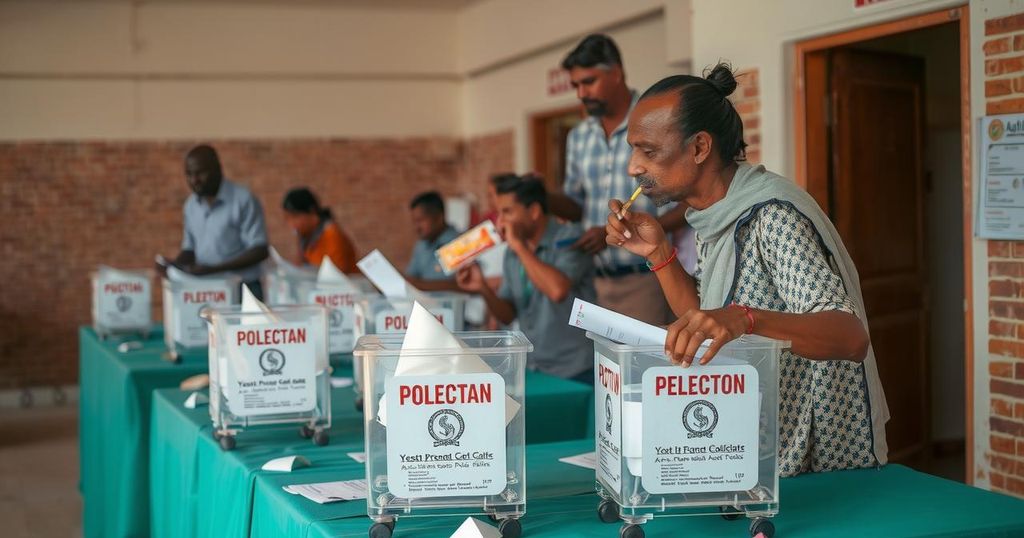Voting Commences in Chad Amid Opposition Boycott and Allegations of Fraud

Chad’s elections mark the first parliamentary vote in 13 years, framed as a critical step towards ending military rule. Despite government assurances, the opposition has called for a boycott, citing predetermined outcomes and a lack of integrity in the electoral process. The elections unfold against a backdrop of public dissatisfaction and pressing economic challenges.
Voting has commenced in Chad for the first parliamentary elections in over a decade, a pivotal development touted by the government as crucial for concluding military rule. Residents are tasked with electing a new parliament, provincial assemblies, and local councils in a country grappling with severe economic challenges. However, opposition parties have declared a boycott, alleging predisposed results and urging the populace to abstain from participating in what they deem a fraudulent process.
Initial voter turnout appeared low in the capital, N’Djamena, where election officials attributed this to shifting weather conditions. President Mahamat Idriss Deby Itno, who assumed power through military intervention in 2021, has encouraged citizens to cast their votes, terming the day as “historic”. Opposition leader Succes Masra insisted that the electoral outcomes were predetermined, undermining the integrity of the elections.
Many citizens, including unemployed individuals like Patrice Lumumba Deoumoundou, expressed aspirations for significant reforms—enhancements in job availability, price stability, equitable treatment, and overall justice in Chad. This sentiment resonates amid ongoing instability, as simultaneous voting took place for armed forces, police, and pastoral nomads with reported strong turnout rates.
Meanwhile, credible allegations surfaced regarding electoral misconduct, including the claimed disappearance of ballots in Bongor. The electoral environment remains fraught with challenges like Boko Haram’s attacks and geopolitical strains, all while the government persists in framing these elections as a step toward democratization following decades of authoritarian governance under Deby’s father.
Chad, a country located in North-Central Africa, has a tumultuous political history characterized by prolonged military rule and authoritarian governance. The recent parliamentary elections are framed by the current administration as a transition to democratic governance after a period of military-led leadership. The socio-economic context in Chad is notably dire, with high levels of poverty and public dissatisfaction. The opposition has mobilized against what they perceive to be rigged elections, expressing doubts regarding the electoral process’s legitimacy. Amid these tensions, the general populace seeks improved living standards and government accountability.
In summary, Chad’s parliamentary elections symbolize a critical juncture in the nation’s political landscape, amidst claims of electoral fraud and widespread opposition boycott. Despite government assertions of progress towards democracy, the reality on the ground reflects deep public disillusionment and instability. The elections, supervised by international observers, are closely watched, with implications for Chad’s future governance and socio-economic recovery.
Original Source: www.aljazeera.com






